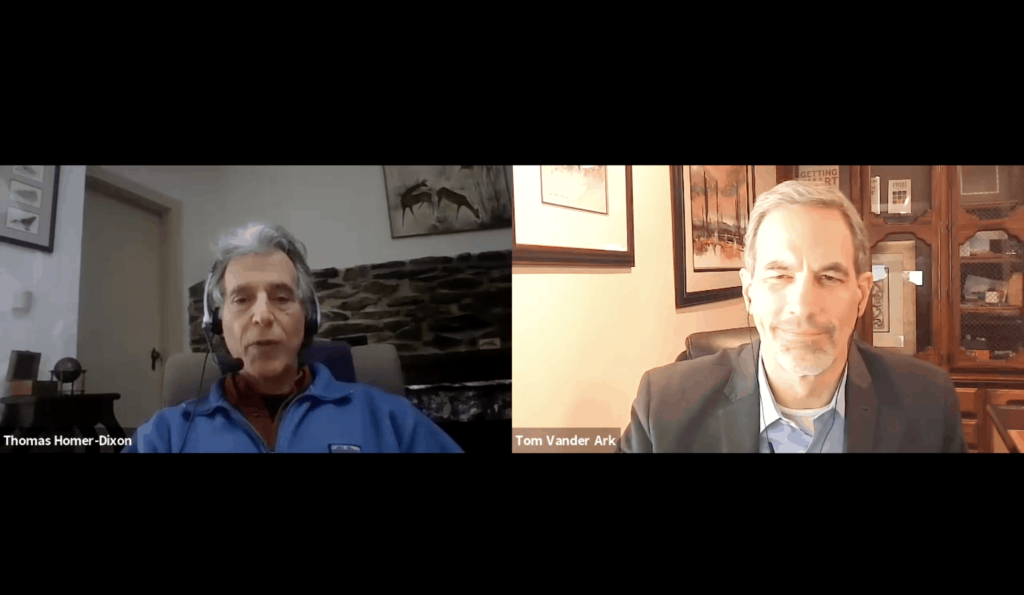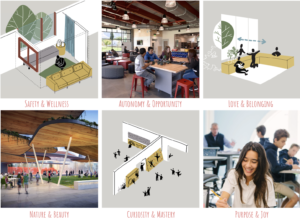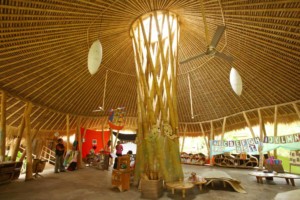Thomas Homer-Dixon on Commanding Hope and the Nature of Complexity

On this episode of the Getting Smart Podcast, Tom sits down with Thomas Homer-Dixon, the author of the new book Commanding Hope: The Power We Have to Renew a World in Peril.
Thomas is also the author of the book The Ingenuity Gap and now directs the Cascade Institute at Royal Roads University in Victoria, Canada. He is also a professor at the Environment at the University of Waterloo.
Let’s listen in as Tom and Thomas discuss why and how the world is getting more complex, the role of complexity scientists and the focus of the cascade institute.
Thomas Homer-Dixon is a complexity scientist, meaning his research has focused on threats to global security in the 21st century, including economic instability, climate change, and energy scarcity. He also studies how people, organizations, and societies can better resolve their conflicts and innovate in response to complex problems. Right now, he says “Unnatural systems are interacting with natural systems in novel and unpredictable ways.”
20 years ago he wrote the book The Ingenuity Gap, about ingenuity as solutions to problems. Our newest publication, Invention Opportunity, in many ways is in conversation with the idea.
He now serves at the Cascade Institute at Royal Roads University. Here, he looks for high leverage intervention points: socio-ecological systems, economic systems, energy systems — “these are places where you can intervene to drive a large divergence in the system.”
About halfway through, the conversation shifts to schools and what students should know to begin to face the climate crisis and other complex challenges. “We must sustain agency,” he said. “The kids around the world are the ones with the most powerful moral voice […] schools should be emphasizing more of a systems thinking approach.”
“Complexity generates enormous possibilities which end up being a sense of hope.”
Thomas Homer-Dixon continues to learn through relentless curiosity, taking on a manageable amount at a time, and ensuring mastery before taking on more.
Key Takeaways:
[:08] About today’s episode with Thomas Homer-Dixon.
[:38] Tom welcomes Thomas to the podcast.
[:55] What is a complexity scientist? And what do they do?
[3:51] The observations and systems that led Thomas to spot the ingenuity gap that he wrote about 20 years ago in The Ingenuity Gap. And is it worse today than it was 20 years ago?
[7:17] Observations from Getting Smart’s “20 Invention Opportunities in Learning & Development” report.
[9:37] Tom highlights how, increasingly, innovation in the public space requires a combination of public, private, and philanthropic funding.
[10:17] Thomas highlights an advantage we have today: our capacity to ramp up combinatorial innovation.
[11:48] What the Cascade Institute is, what they do, and its mission.
[15:00] Tom congratulates Thomas on his new book and reads the opening passage.
[16:13] Who is Stephanie May and why was she an inspiration for Thomas’s new book, Commanding Hope?
[21:28] How important is helping students develop a sense of agency and knowing that they can have an impact on the world? How do students achieve a sense of agency?
[24:29] How and where students should learn about climate change.
[26:06] How schools and system heads should engage young people in solutions around climate change.
[28:28] Simple cultural efforts schools can make to help create more awareness among their students on their environmental footprint.
[29:35] The importance of creating space for young people to take on their own passion projects and go deep with them.
[30:04] Thomas shares how he continuously learns.
[32:38] Has Thomas read Bill’s new book, How to Avoid a Climate Disaster?
[32:57] Tom thanks Thomas for joining the podcast!
Mentioned in this Episode:
- Thomas Homer–Dixon
- Commanding Hope: The Power We Have to Renew a World in Peril, by Thomas Homer–Dixon
- The Ingenuity Gap: Facing the Economic, Environmental, and Other Challenges of an IncreasinglyComplex and Unpredictable Future, by Thomas Homer–Dixon
- Cascade Institute
- University of Waterloo
- “20 Invention Opportunities in Learning & Development,” by Getting Smart Staff
- Stephanie Middleton May
- Elizabeth May
- Greta Thunberg
- Difference Making at the Heart of Learning: Students, Schools, and Communities Alive With Possibility,by Tom Vander Ark and Emily Liebtag
- How to Avoid a Climate Disaster: The Solutions We Have and the Breakthroughs We Need, by Bill Gates
Stay in-the-know with innovations in learning by signing up for the weekly Smart Update.






0 Comments
Leave a Comment
Your email address will not be published. All fields are required.